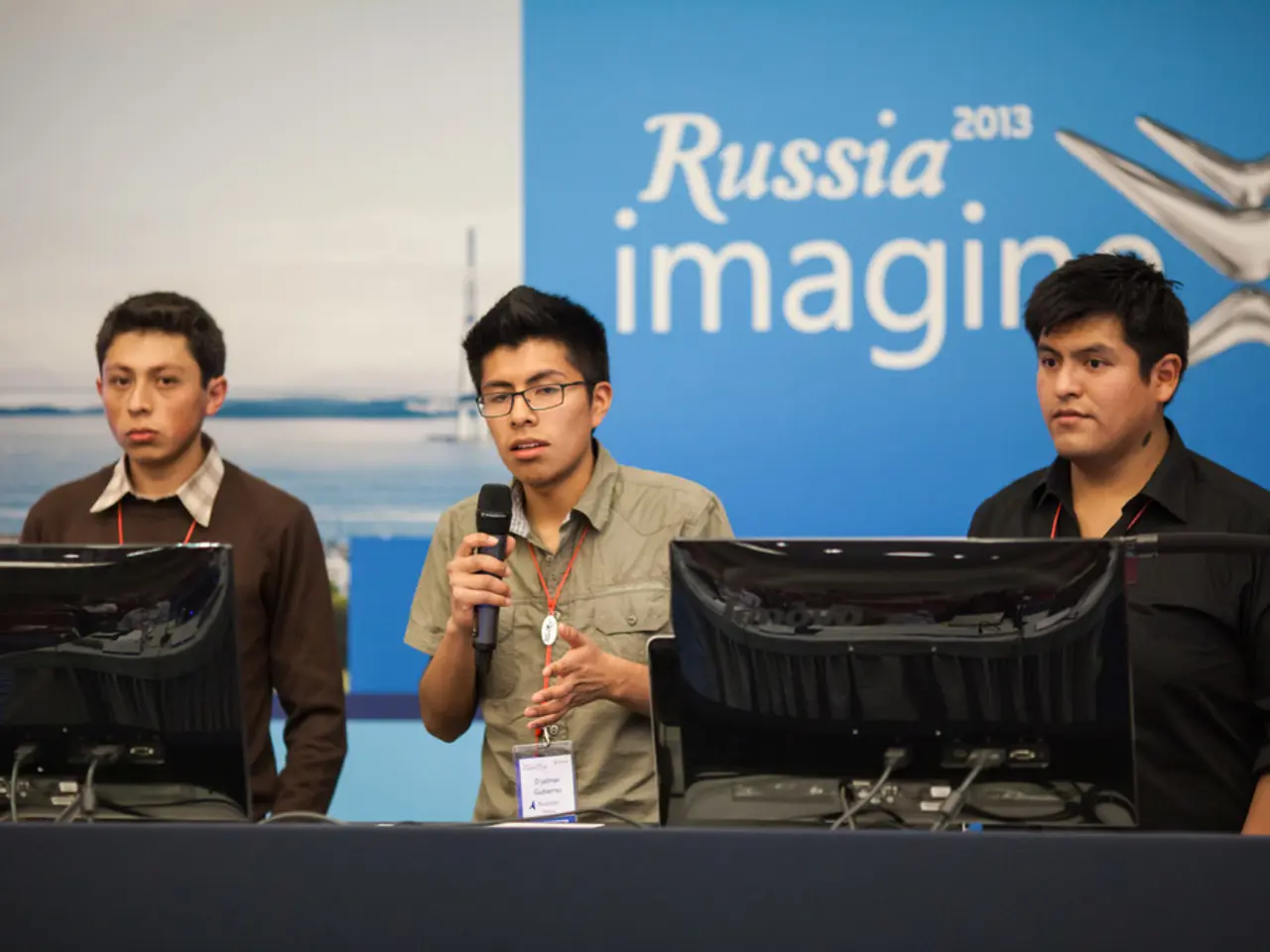Despite the ban implemented in the European Union, many Russian websites remain accessible, including in Germany. - Websites of Russian origin persistently accessible within the EU, including Germany, despite imposed restrictions
In a recent study by the Institute for Strategic Dialogue (ISD), it was found that EU sanctions aimed at blocking Russian state media such as RT and Sputnik have had limited effectiveness in actually preventing access to these outlets in Germany, France, Italy, Poland, the Czech Republic, and Slovakia [1][3][4][5].
The study revealed that fewer than 25% of attempts to access sanctioned Russian media websites were successfully blocked by major internet providers across the six EU countries mentioned [1]. In Slovakia, none of the tested banned domains were successfully blocked, and in Poland, 50 out of 59 banned Russian media domains were still accessible without restriction [1]. Germany showed the highest level of blocking, with between 25 and 33 domains successfully blocked by providers, yet even there some sanctioned sites remained highly visited [1].
France, Italy, the Czech Republic, and Poland also have significant accessibility to these Russian outlets despite bans [1][3][4]. The persistence of these websites online illustrates challenges with enforcement and technical limitations in fully implementing the sanctions [1][2].
The EU Commission lists which media are banned in the 27 member states, but not the exact internet addresses [6]. This lack of specificity makes it difficult for internet service providers to effectively block the sites. According to one of the study's authors, Pablo Maristany de las Casas, if the EU Commission provided a list of exact internet addresses, it would be much easier for member states and internet providers to enforce the blocks [6].
Russia is using "mirror domains" to bypass the EU's media bans on sites like RT [7]. This means that even if a particular domain is blocked, Russian state media can still be accessed through a different domain with a similar name.
The study also found that the Sputnik group and the website RT (previously known as Russia Today) are among the Russian media banned in the EU [2]. The EU's sanctions are intended to combat misinformation and a "information war" from Russia [8].
Despite the limited effectiveness of the EU sanctions, Russian state media are still strongly represented online and pose continuous challenges to Western democracies, according to the study [7]. The study on Russian media access in Europe examined access in Germany, France, Italy, Poland, the Czech Republic, and Slovakia [9]. Slovakia, despite having sanctions in place, has no blocks on Russian state media websites since the expiration of a Slovak law in 2022 [10].
In conclusion, while the EU sanctions legally restrict Russian state media presence, practical enforcement by internet service providers in these countries has been largely ineffective, leaving users with continued access to RT, Sputnik, and other Kremlin-linked media sites as of mid-2025 [1][3][4].
- The EU Commission's sanctions against Russian state media, such as RT and Sputnik, have faced challenges in enforcement, with fewer than 25% of attempts to access these sites successfully blocked in Germany, France, Italy, Poland, the Czech Republic, and Slovakia [1].
- The study revealed that Poland, Slovakia, and Germany have significant issues with the implementation of these sanctions, with 50 out of 59 banned Russian media domains still accessible in Poland, none blocked in Slovakia, and varying levels of blocking in Germany [1].
- The authors of the study suggest that providing a list of exact internet addresses for the banned media sites would aid in more effective enforcement by member states and internet providers [6].
- Russia uses "mirror domains" to bypass the EU's media bans, meaning that even if a particular domain is blocked, Russian state media can still be accessed through a different domain with a similar name [7].




